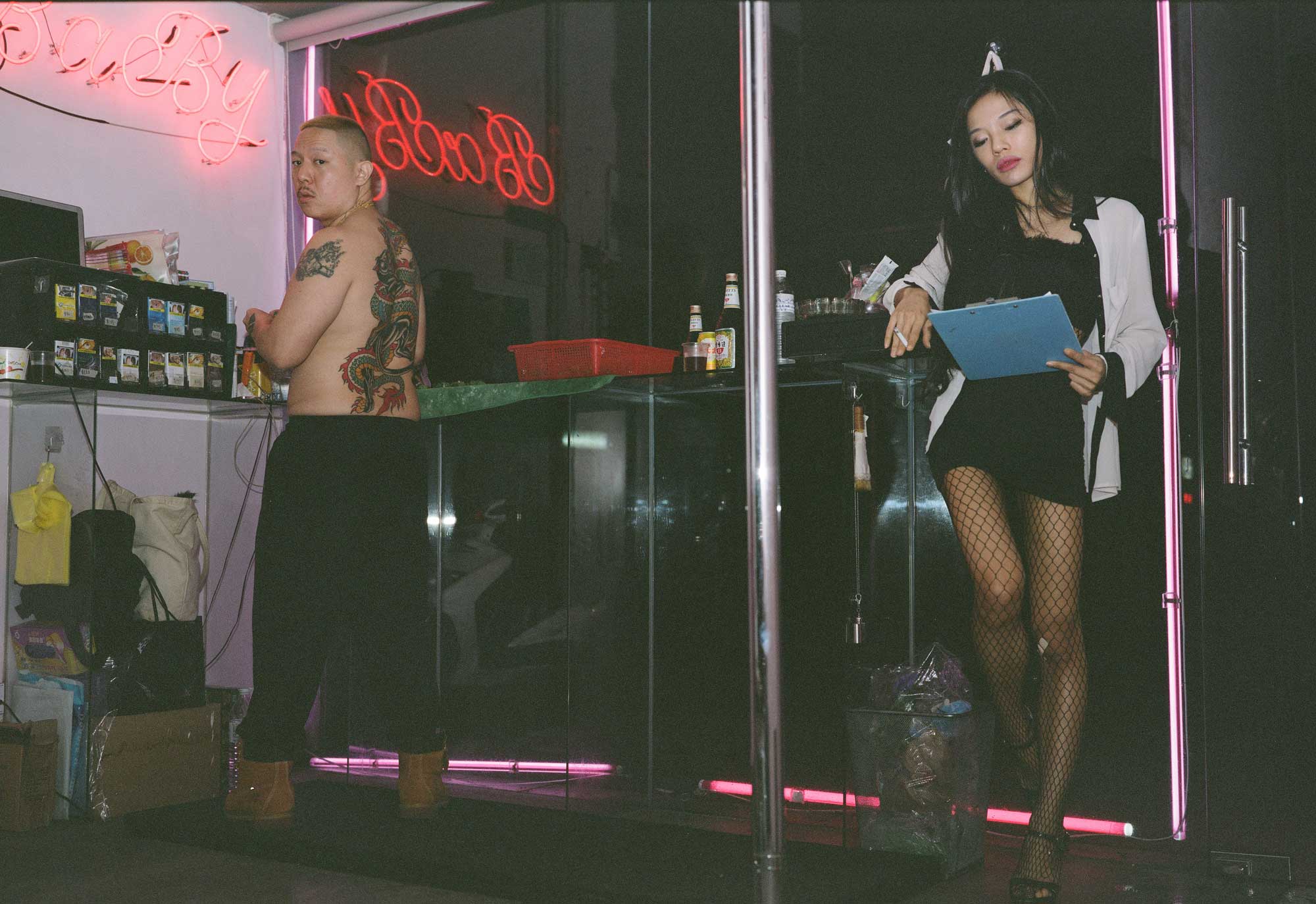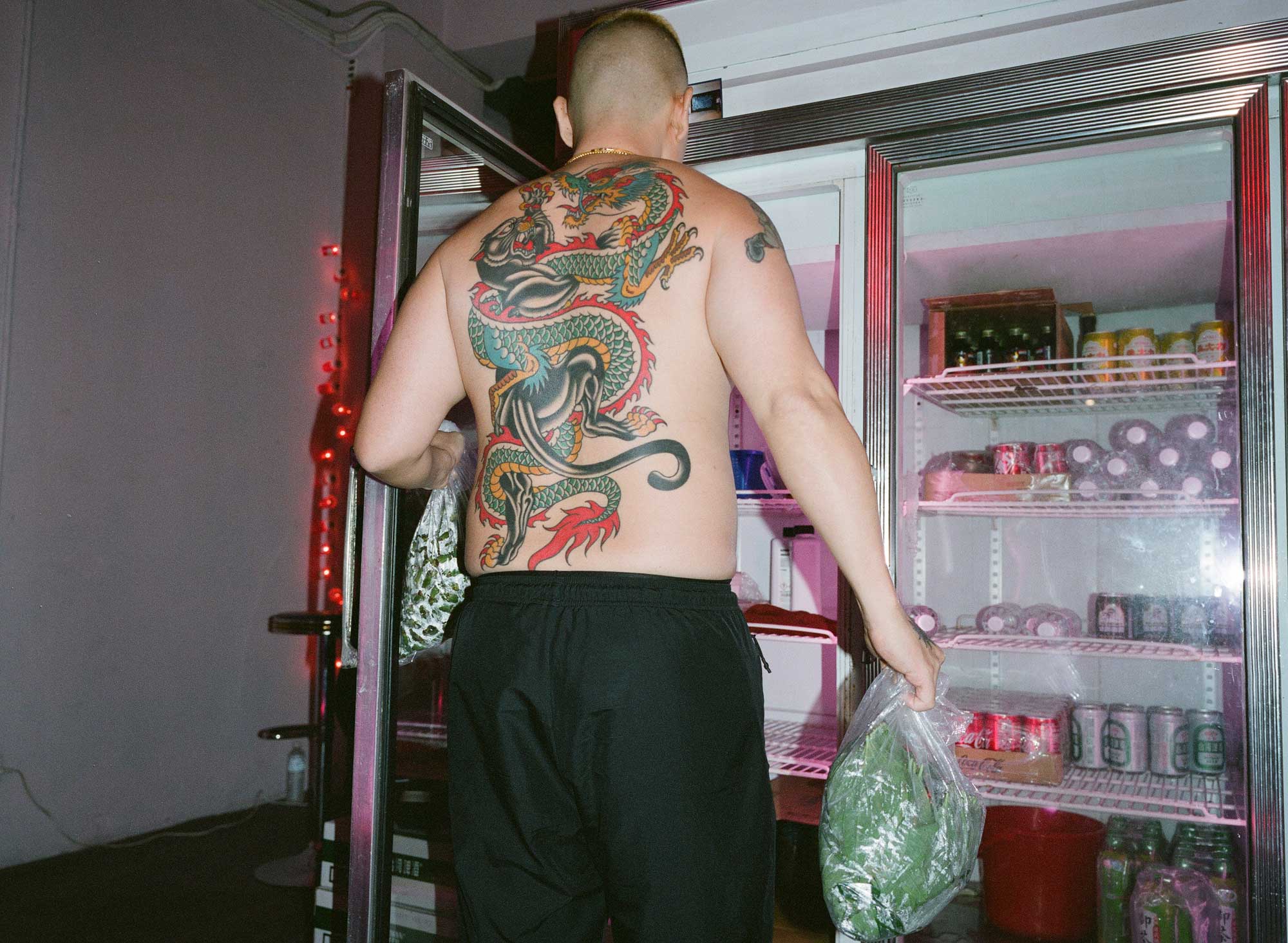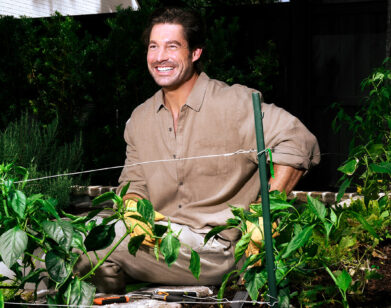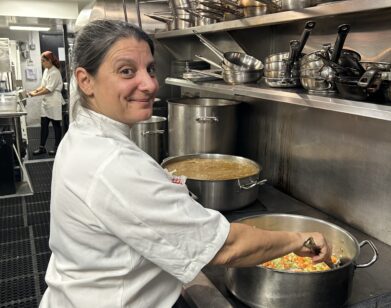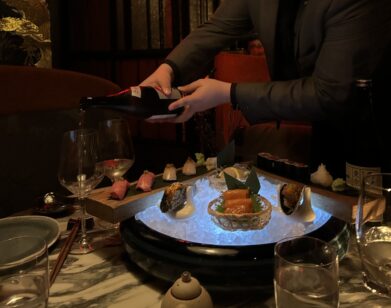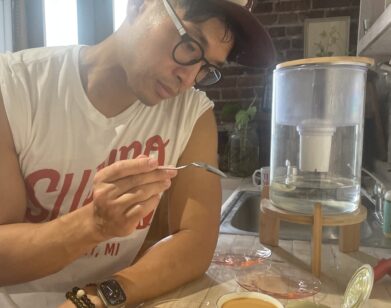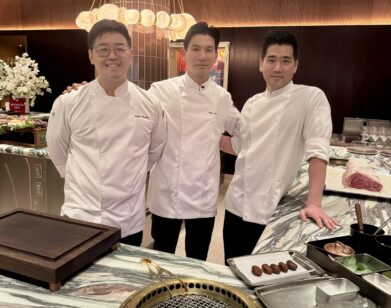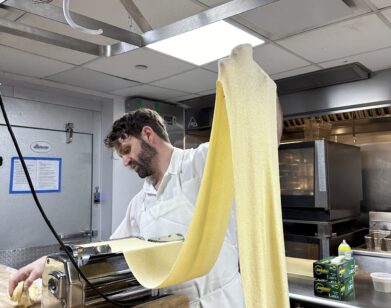LESSON
Eddie Huang’s Guide to Making Your First Movie
Eddie Huang will try anything once. After graduating from law school in 2008, he’s been, in no particular order, a corporate lawyer, a stand-up comic, a weed dealer, and a streetwear impresario. But it wasn’t until he opened the New York restaurant Baohaus, a loud and proud homage to his Taiwanese roots, that Huang began to fully harness his talent for bridging cultures. He went on to host multiple food and travel shows, and his memoir Fresh Off the Boat—about his search for identity while growing up in suburban Orlando—was adapted into an ABC sitcom. This spring, the 39-year-old chef adds filmmaker to his resume with the release of Boogie, the street-level story of an aspiring Chinese-American basketball star being pulled between two worlds, which hits theaters on March 5. This is how he did it—and how you can, too.
———
Make friends: The hardest part of making a movie is paying for it. Every person in your life becomes a potential investor or contributor. I enlisted all my friends. My assistant became my lead, my mom played a fortune teller, [the rapper] Despot was hanging out on set and became a character, half my rec-league basketball team is in the film. I made two of the songs for the soundtrack in Taiwan with dudes I met in the club, others donated locations, and friends of friends became heads of departments. Make friends, then make movies—together.
Practice working with actors: There’s a lot to keep track of as a director, but you can be terrible at everything as long as you do one thing well, and that’s working with actors. Every other department has a dedicated leader who is already incredible at what they do. You can get caught up trying to impress your DP with your knowledge of lenses or your production designer with your collection of fine china, but the only thing you actually have to handle is actors. That is the one thing you can’t fuck up.
The Ja Rule: As Ja once said, “Always there when you call, always on time.” I’ve heard horror stories about production delays, things running over budget, and directors being replaced. Growing up in restaurants, it was never okay to be late, short on the register, or wasteful with food. I brought that restaurant mentality to Boogie and told everyone that the schedule is the schedule and the days are the days. This is what is budgeted and this is what has to get done today. We’re all artists, but we’re also a business. The only way I get to make another film is if this one makes money. We finished principal photography on time and under budget—despite losing an actor to a threesome, where he got cracked over the head with a champagne bottle, amongst other unconscionable circumstances—because we said we would.
Go crazy: On the day you’re shooting a scene, it doesn’t matter how many movies you’ve watched or how many times you’ve storyboarded it, you have to be in it. You have to be with your actors, and on the journey, as a participant. One of my favorite scenes was written on set. One day, we finished early, so I threw Taylor [Takahashi, who plays the title character] and Jorge [Lendeborg Jr.] back on set, and gave them a deck of Monopoly Deal cards. I told Taylor, “You want to play cards instead of working on this school project because you don’t think school matters.” I told Jorge, “Boogie has basketball, you don’t. The only way you get to college is if you get him to work on this project with you.” It was my favorite scene to shoot because it reaffirmed the magic that can happen when a group of people put aside their fears and get after it.
Go away: After you shoot it, forget it. I spent way too much time editing and only figured the movie out once I stopped watching it. I’ve never had kids, but I do remember telling my parents over and over since the age of 12 to leave me alone, and I imagine that’s how my movie felt.

